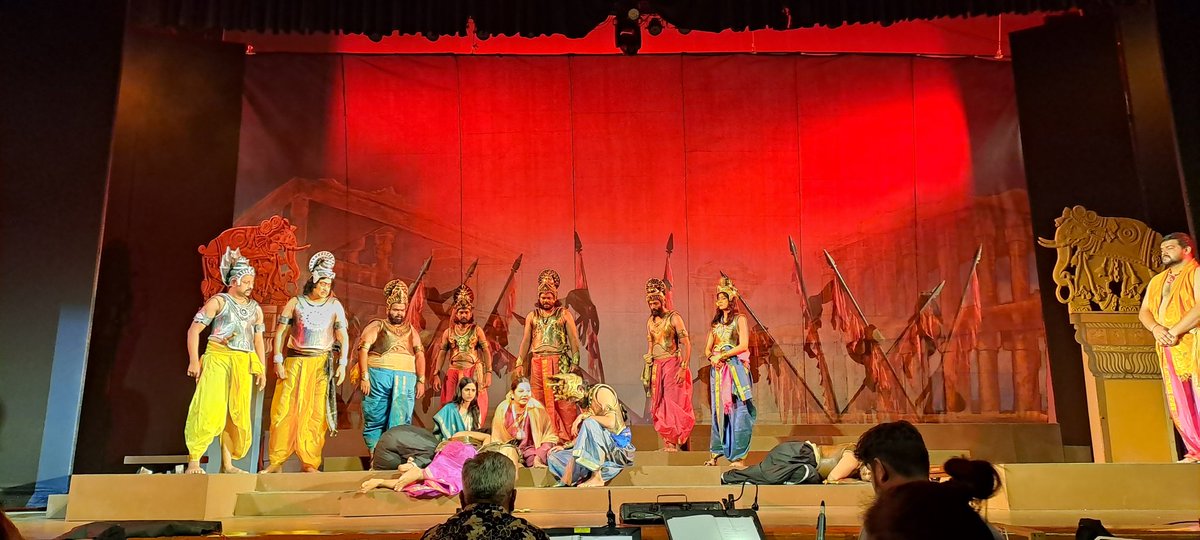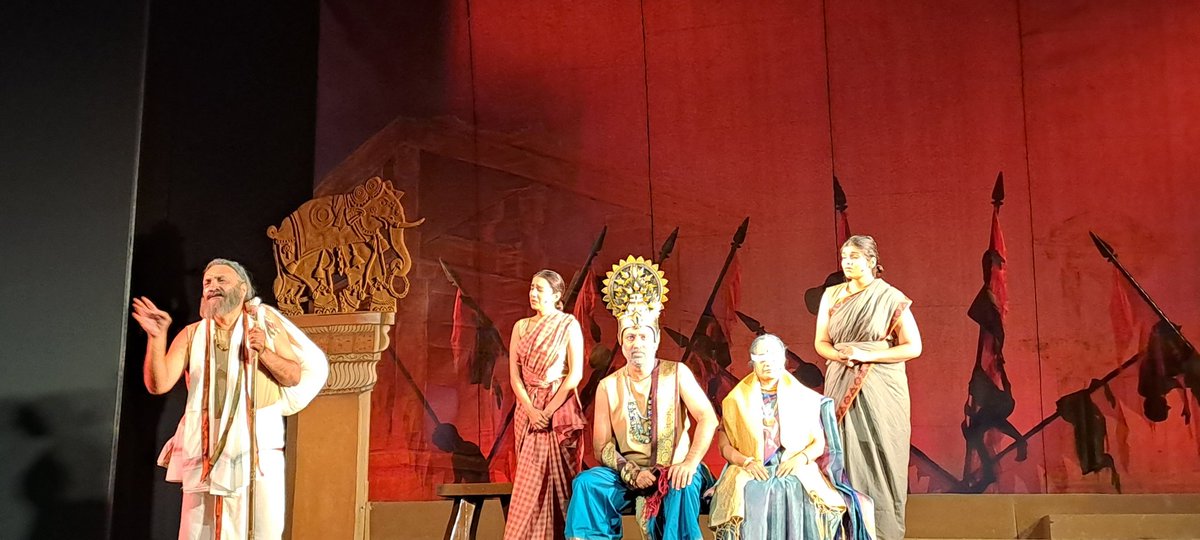A Thread on Shravanakumara who is killed by Dasharatha unwittingly.
Ayodhya Kanda Sarga 63 Shloka 51 Onwards
Ayodhya Kanda Sarga 64 Shloka 32 Onwards
valmikiramayan.net/utf8/ayodhya/s…
1/n
Ayodhya Kanda Sarga 63 Shloka 51 Onwards
Ayodhya Kanda Sarga 64 Shloka 32 Onwards
valmikiramayan.net/utf8/ayodhya/s…
1/n
Ayodhya Kanda Sarga 63 Shloka 51, 52
Shravana Kumar senses that, apart from feeling guilty of killing an innocent boy, he will invite the wrath of Brahma Hatya Dosha. He says "Oh King, do not trouble yourselves by the thought that you have killed a Brahmana"
2/n
Shravana Kumar senses that, apart from feeling guilty of killing an innocent boy, he will invite the wrath of Brahma Hatya Dosha. He says "Oh King, do not trouble yourselves by the thought that you have killed a Brahmana"
2/n
Ayodhya Kanda Sarga 63 Shloka 53
"I am not a Brahmana. I am born to a Vaishya Father and a Shudra Mother"
Shloka 54
Dasharatha describes Shravanakumara as a "tapOdhanaH", one whose wealth is Tapas.
3/n
"I am not a Brahmana. I am born to a Vaishya Father and a Shudra Mother"
Shloka 54
Dasharatha describes Shravanakumara as a "tapOdhanaH", one whose wealth is Tapas.
3/n
Ayodhya Kanda Sarga 64
Shloka 1: Dasharatha describes Shravakumara as a Maharshi
Shloka 14, 17: Dasharatha calls Shravanakumara's father "Bhagavan"
Shloka 20: Dasharatha calls him "Muni"
4/n
Shloka 1: Dasharatha describes Shravakumara as a Maharshi
Shloka 14, 17: Dasharatha calls Shravanakumara's father "Bhagavan"
Shloka 20: Dasharatha calls him "Muni"
4/n
Ayodhya Kanda Sarga 64
Shloka 21: Dasharatha calls him "Bhagavan Rishi"
Shloka 25: The Sage describes his son as Tapasi Muni and Brahmachari (Killing such a person inflicts a naturally negative result on Dasharatha)
Shloka 29: Dasharatha describes him as a Muni
5/n
Shloka 21: Dasharatha calls him "Bhagavan Rishi"
Shloka 25: The Sage describes his son as Tapasi Muni and Brahmachari (Killing such a person inflicts a naturally negative result on Dasharatha)
Shloka 29: Dasharatha describes him as a Muni
5/n
Ayodhya Kanda Sarga 64 (This is very important)
Shloka 33: The sage laments "from whom will a listen to the recitation of the Shastra, particularly the one in the night"
Shloka 34: "Who after taking bath in the morning and *Worshipping the Sandhya* will sit next to me"
6/n
Shloka 33: The sage laments "from whom will a listen to the recitation of the Shastra, particularly the one in the night"
Shloka 34: "Who after taking bath in the morning and *Worshipping the Sandhya* will sit next to me"
6/n
Ayodhya Kanda Sarga 64
Shloka 48: Again Dasharatha describes Shravana as a Muni Putra. (He ascended the Svarga along with Indra)
Shloka 49: Again Dasharatha calls him Muni Putra
Shloka 51: Calls his father Tapasa - full of Tapas
Shloka 56: Shravana referred as Muni
7/n
Shloka 48: Again Dasharatha describes Shravana as a Muni Putra. (He ascended the Svarga along with Indra)
Shloka 49: Again Dasharatha calls him Muni Putra
Shloka 51: Calls his father Tapasa - full of Tapas
Shloka 56: Shravana referred as Muni
7/n
Matter is very clear. Muni-s and Rishi-s could be from any Varna.
- They could perform Tapas
- They could study the Shastras
- They could perform the Sandhya Vandana
- Their Tapas could be of the same impact as others
n/n
- They could perform Tapas
- They could study the Shastras
- They could perform the Sandhya Vandana
- Their Tapas could be of the same impact as others
n/n
• • •
Missing some Tweet in this thread? You can try to
force a refresh









